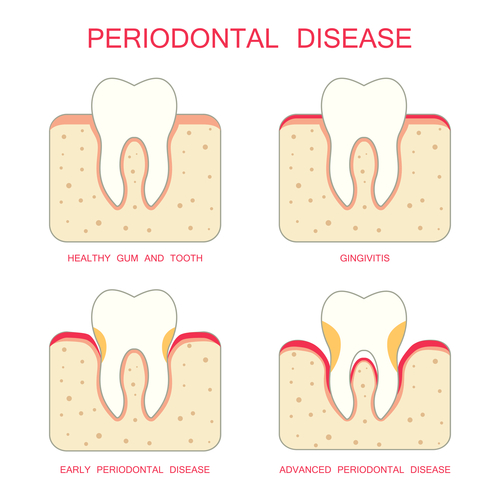Scaling and Root Planing For Gum Disease At Bowmanville Dental
Scaling and Root Planing: A Non-Surgical Treatment for Gum Disease
According to the World Health Organization, approximately 15 to 20 percent of adults between the ages of 35 and 44 suffer from severe periodontal disease. This condition is caused by a dangerous infection that can quickly spread to adjacent teeth, resulting in further dental problems, such as mobility and tooth loss. At Bowmanville Dental in Bowmanville, ON, our doctors offer various treatments for periodontal disease, including scaling and root planing. This non-surgical procedure can address gum disease before it progresses, giving you the best chance for long-term optimal oral health.
What Causes Gum Disease?
Before we delve into the specifics of scaling and root planing, it is important to understand what causes gum disease in the first place. The plaque and tartar that accumulate around the teeth harbor bacteria. If the buildup is not removed, the bacteria begin to irritate the tissue, causing the gums to become red and swollen. If left untreated, the bacteria will become trapped under the gum line, infecting the surrounding jawbone, resulting in pockets around the teeth roots. When this occurs, the problematic areas cannot be reached with brushing and flossing alone.
What is Scaling and Root Planing?

Mild and moderate gum disease can be treated with periodontal scaling and root planing. This treatment is somewhat similar to a routine dental cleaning. However, in this case, the gums are also numbed so the clinician can reach deeper into the gum line, accessing the areas of concern. Using a combination of ultrasonic instruments and hand scalers, your teeth will be thoroughly cleaned to remove any plaque, tartar, and bacteria. The roots of your teeth will then be smoothed to deter further irritants from reattaching to the surfaces.
What about recovery? Following scaling and root planing, most patients experience a slight and temporary increase in temperature sensitivity. However, discomfort is typically minimal. Any pain can be sufficiently addressed with over-the-counter medications such as acetaminophen, ibuprofen, or naproxen. You should be able to brush and floss normally following the procedure, and you are encouraged to do so within your comfort level. It is important to practice consistent oral hygiene after your treatment to maintain the progress made by the scaling and root planing procedure.
Re-Evaluating Your Periodontal Health
After a few weeks of healing, we will schedule you for a periodontal re-assessment. During this visit, your doctor will measure the pockets around your teeth and evaluate the health of the underlying jawbone. If there has been improvement, we will discuss an ongoing cleaning schedule with you. If there has been little to no improvement, your condition may necessitate more advanced periodontal treatment, such as gum pocket reduction surgery. Our doctors can discuss a treatment plan that will effectively meet your unique dental needs.
The Importance of Periodontal Maintenance
Once your gum health is stabilized, a periodontal maintenance schedule will be recommended for you. Periodontal maintenance simply involves a routine dental cleaning, for the purpose of preserving your progress and sustaining optimal oral health.
Many people are more prone to developing periodontal disease, as there is an undeniable genetic component. Dental patients who do not suffer from gum disease typically receive regular cleanings approximately every six months. If you are genetically predisposed to periodontal issues, more frequent cleanings may be recommended to keep bacteria levels at bay.
Schedule a Consultation with Us Today. If you are experiencing signs of periodontal disease, such as bleeding, swollen, or tender gums, schedule a consultation with one of our doctors. We can help you determine a conservative treatment plan that will address the disease and prevent your situation from worsening.
